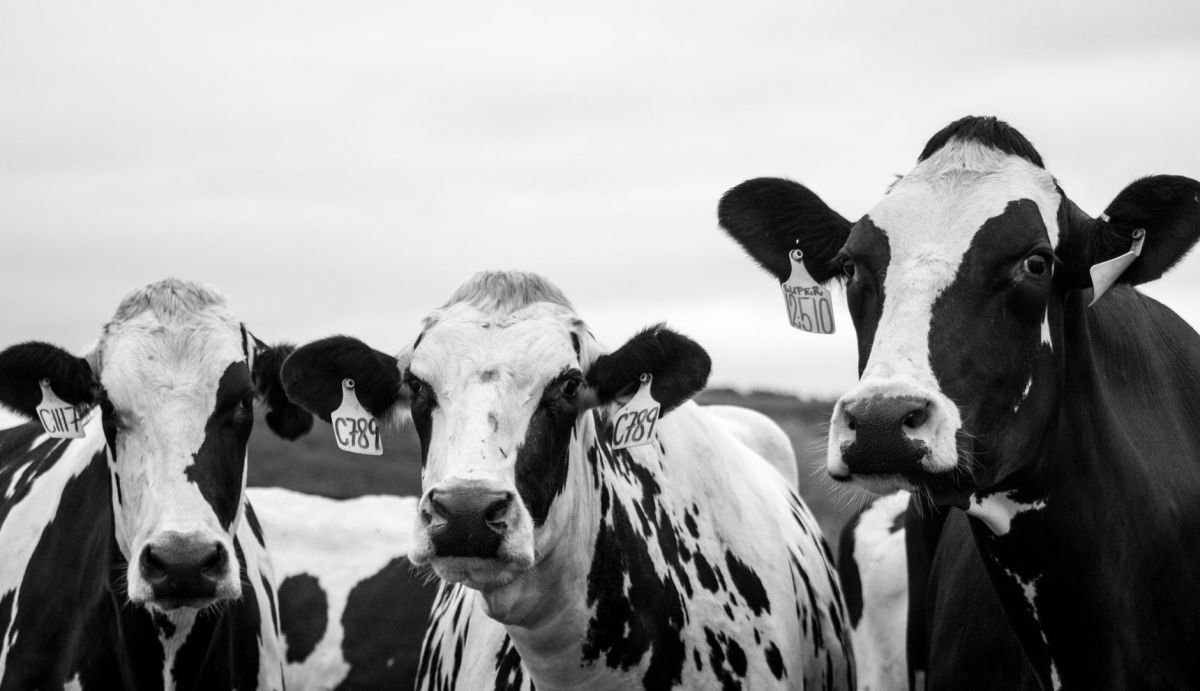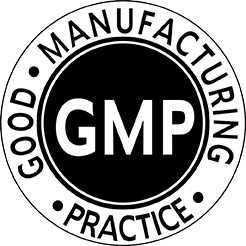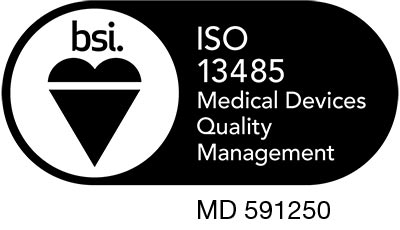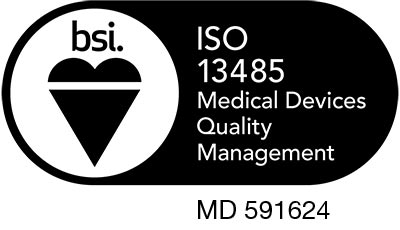What is BSE?
BSE (Bovine Spongiform Encephalopathy) is a degenerative disease that affects the central nervous system of cattle. The first case of BSE was in 1986 in the United Kingdom and was believed to be the result of the cattle using a protein diet that consisted of ground-up animal parts that included tissues from the central nervous system. If the consumed feed included animal containing an abnormal prion, the cow will likely become infected.
In 1996, the first case of Creutzfeldt-Jakob Disease (CJD) was reported and was assumed to be transmitted after consumption of meat that had come into contact with infected tissue during slaughter, such as the brain, spinal cord, tonsils or intestines.
CJD is a variant of BSE that people can get. After one becomes infected with CJD, they will experience mental deterioration as well as loss in movement functionality, and ultimately death. There have been 232 cases worldwide of CJD, with 100% death rate. In order to become infected with CJD, one must eat food derived from a cow that had BSE.
Can you get BSE from Collagen?
There is little evidence that BSE can be transmitted through collagen, as collagen is most typically derived from cow dermis, or tendon, not the central nervous system where BSE typically infects. Moreover, during harvest, meat processors go to great lengths to remove, segregate and discard nervous system tissue from the balance of production.
However, even when there is little evidence that collagen can contain BSE, it is still advised to be as careful as possible due to the severity of BSE and CJD. It is best to know research the manufacturers that you are purchasing from as well as where the cattle are sourced from. Additionally, if you are developing medical devices for commercial sale, the regulatory bodies will pay close attention to the source of any animal-derived materials during the approval process.
Collagen Solutions Collagen
When it comes to risk of BSE, Collagen Solutions goes to great lengths to ensure that the animal-derived materials we use are safe and free from disease.
Collagen Solutions provides the following:
- Traceability of the material from the abattoir (meat processor) back to the farm.
- Quality Management Systems that are certified by both ISO 13485 (industry standard for medical device standards) and ISO 2242-2 (medical devices derived from animal products)
- Quality personnel on staff that regularly audit our abattoirs
- Use of multiple abattoirs to reduce the risk of disease
-
Animals only sourced from the United States, New Zealand and Australia where there is considered to be negligible risk, according to the OIE1
- Facilitation of customer audits as required
OIE
OIE is the World Organization for Animal Health with the mission of “safeguarding world trade by publishing health standards for international trade in animals and animal products.” OIE sets the criteria for assessing the status of countries and/or regions based on their BSE risk.
In order to meet the requirements for negligible BSE risk status, the zone must comply with the following:
- A risk assessment identifying all potential risk factors for BSE to occur and measures in place to properly control and reduce those factors
- Prohibition to feed ruminants with ruminants is appropriately implemented and monitored
- BSE awareness, education and reporting programs have been continuously implemented
- Diagnostic competency within the laboratory system
- BSE surveillance conducted in accordance with the OIE guidelines
- Any case of classical BSE was born 11 years ago or more and all cases of BSE have been properly dealt with
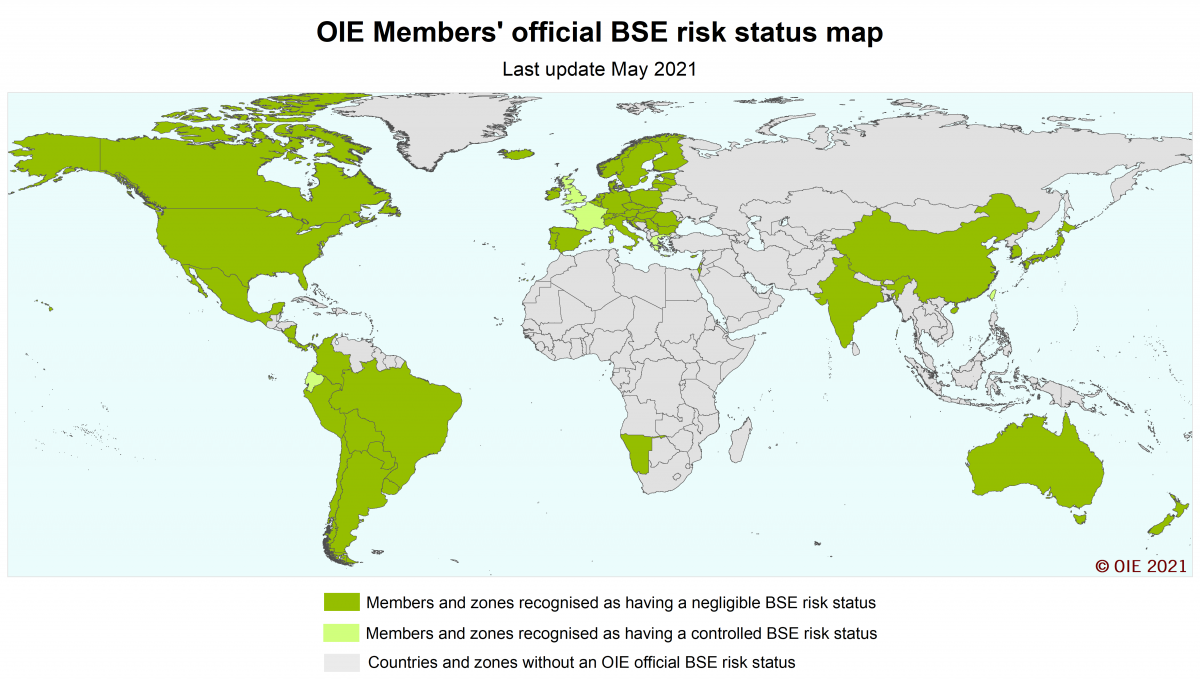
Image sourced from OIE
1World Organization for Animal Health. (2021). OIE. https://www.oie.int/en/home/

